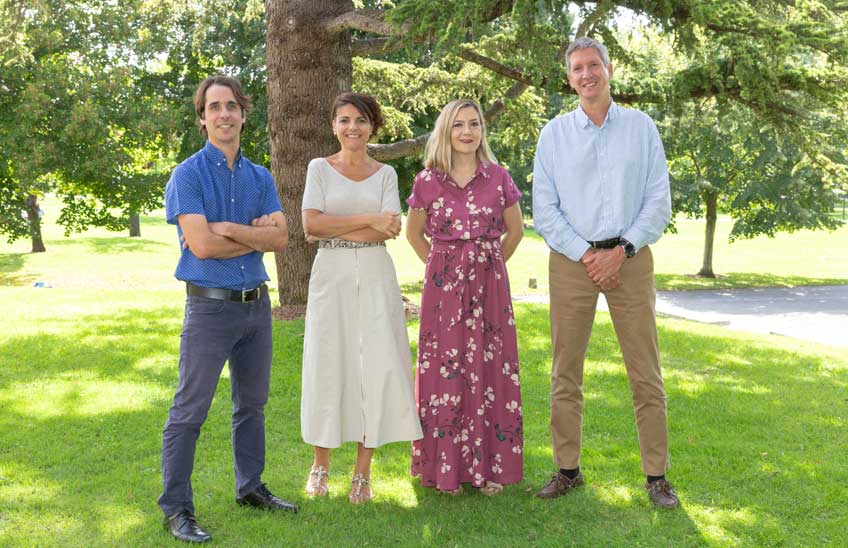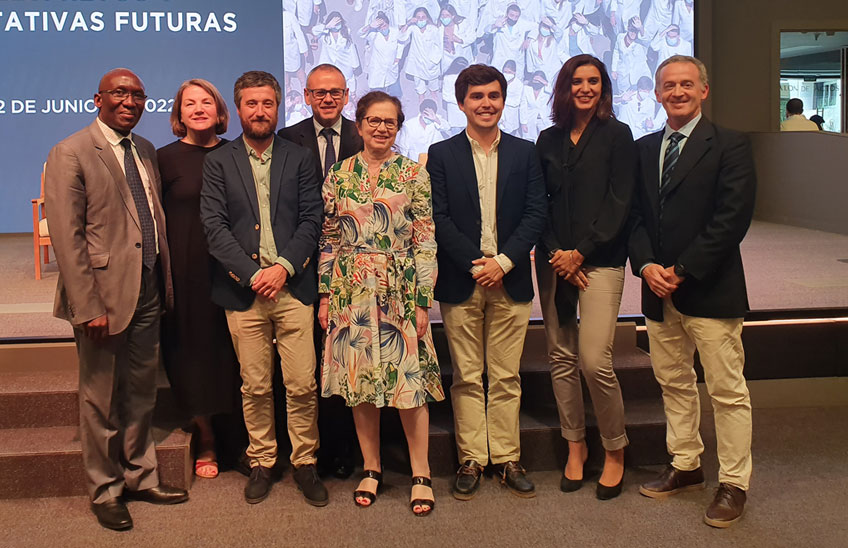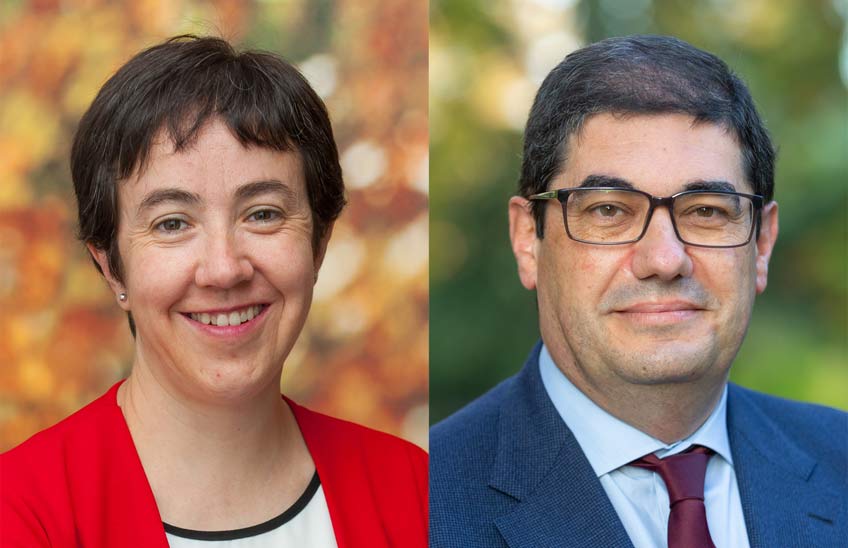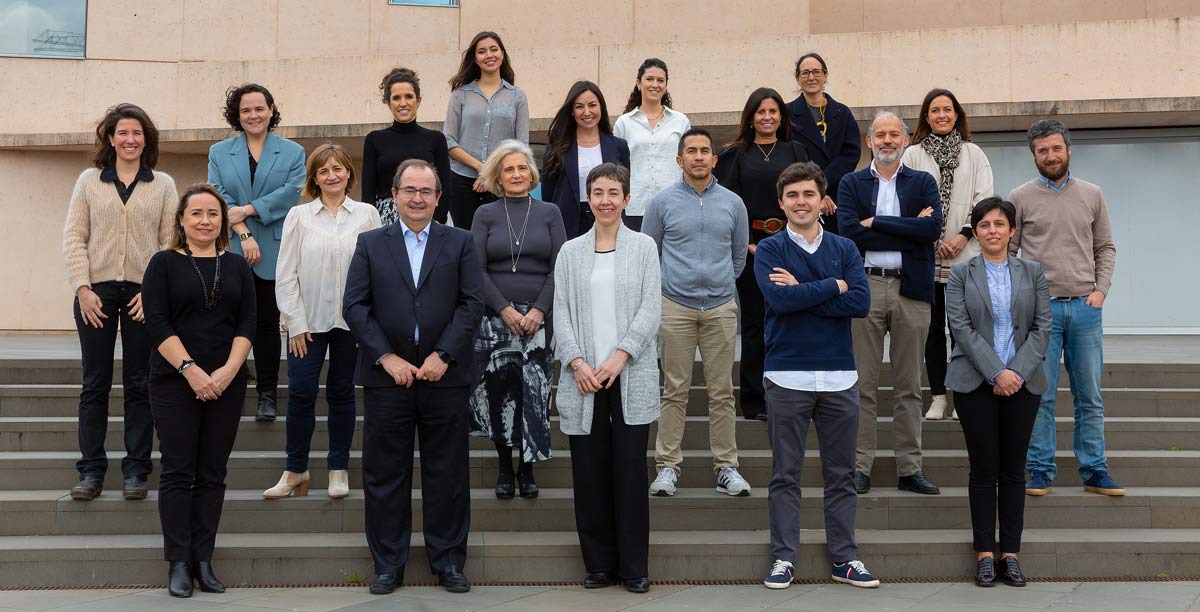"The future of palliative care goes through a mandatory training on the Schools"
Carlos Centeno, Full Professor of the University of Navarra, stresses that Spain has only half of the palliative care services needed.
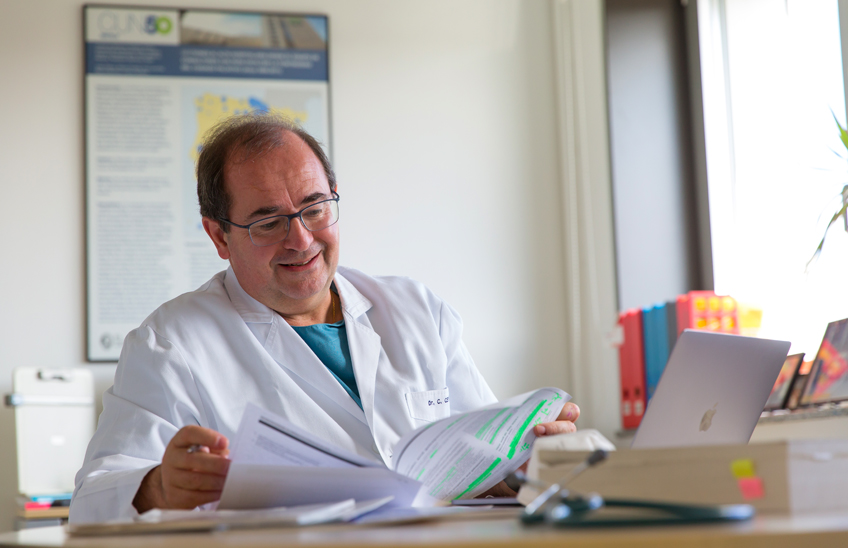
PhotoManuelCastells/
10 | 10 | 2022
"The existence of specialized teams in Palliative Medicine is an indicator of how this subject of medicine is in a country, together with the training of healthcare professionals and the availability of drugs that make treatments possible. In Spain, the availability of drugs is good, but we currently have half the number of specialized services that would be needed and not all professionals have the basic knowledge to provide patients with the care they need". This is the X-ray made by Dr. Carlos Centeno, Full Professor of the School of Medicine of the University of Navarra and director of the Palliative Medicine Service of the University of Navarra, on the occasion of World Hospice Day. Clínica Universidad de NavarraThe World Day for Palliative Care, which is celebrated on October 9.
To balance the balance, the specialist points to the training in the Schools of Medicine: "Currently, of the more than forty that exist in the country, only about ten teach palliative care in compulsory subjects and many others offer it in the form elective subject, while the rest do not teach palliative care to their students," he explains. However, Dr. Centeno rules out the need for an intensive training , and is in favor of a basic training , along the lines of what is taught in countries such as Italy, Germany, the United Kingdom, Norway or France, which will help any physician to know what to do, how to behave and how to alleviate the suffering of a patient in the advanced phase of life, not just in the last days.
"The University of Navarra saw that this was a fundamental aspect 15 years ago, when palliative medicine began to be offered as subject elective subject ", he relates. "Immediately the students grasped that this had to be for everyone, the School listened to it and it was included as a subject required subject and mandatory. Experience tells us that this way of teaching reunites students with the fundamental issues that made them choose Medicine, and reinforces their commitment to the patient, the relationship with the family, the need to work as a team or the importance of emotional and spiritual support for the sick".
"Palliative care is not for when there is nothing left to do."
For Dr. Centeno, the definition of palliative care does not include death: "The raison d'être of palliative medicine is not that there is nothing to be done, it is to alleviate the intense suffering that exists in the person due to the fact that he or she has a serious illness, something that the patient immediately perceives: he or she does not care what it is called, but understands that it relieves it, it helps and he or she feels better".
This perspective gives meaning to the peculiar way of working of the team at Clínica Universidad de Navarra , whose maxim is "Palliative medicine, the sooner the better", providing this care at the same time as treatments against the disease, such as chemotherapy or immunotherapy, for example. "Every day, the team is divided: half of it goes to the hospital floors and the other half works in outpatient clinics, with patients who come from the street to receive oncological treatments or with advanced respiratory insufficiency, etc. These are patients who are in pain, who are in low spirits, who are extremely tired... and who benefit early from the palliative approach because it accompanies the treatment of their disease".
Ten years of research to transform society
This approach, together with the increasingly relevant professor dimension, has as purpose improve society, just as palliative care improves the quality of life of patients. "In Spain we see that social participation has begun with the movement of patient organizations, the emergence of compassionate cities...," notes Dr. Centeno. Similarly, there is an increase in the research in Palliative Medicine with the emergence of different study groups.
Recently, the group Atlantes of the high school Culture and Society (ICS) of the University of Navarra, of which Carlos Centeno is researcher principal, has completed a decade of work in the definition and promotion of palliative care. During this time, the team has carried out three lines of action that have direct repercussions on the activity professor of the University and the attendance healthcare that is carried out at the Clinic: "On the one hand, we have worked on the values associated with Palliative Medicine, while at the same time we have documented the development of palliative care in different parts of the world as a major public health study, and we have analyzed how its message reaches society and the professional," he points out.
Since March 2022, Atlantes Global Observatory of Palliative Care has been a center partner of the WHO. "The programs of study on the global development of palliative care first caught the attention of international scientific societies, who asked us partnership to evaluate regions of the world such as Europe, Latin America, Africa and Arab countries. When these programs of study, with hundreds of collaborators from all over the world coordinated from the University, have become known through atlases and high impact scientific publications, the WHO appointed us partner center for monitoring palliative care worldwide."
The line of research of Palliative Medicine of the University of Navarra is one of the main axes of its Strategy 2025. It promotes a social impact-oriented research and a scientific production focused, in this case, on the search for personalized solutions for the health care of patients with diseases that involve severe pain.

